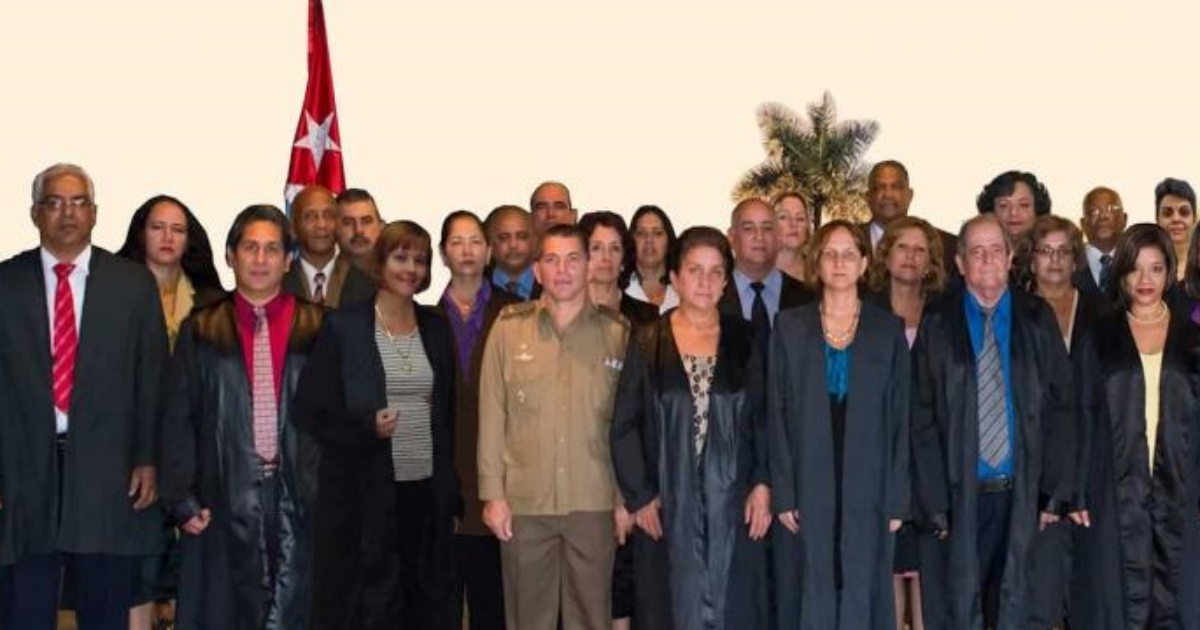
HeCuban Observatory of Human Rights (OCDH) condemned the lack of impartiality of Cuban judges, whose complicity with the regime on social networks is typical of political "activists", to the detriment of the notion of justice.
This is illustrated by the most recentreport from the Madrid-based NGO, published this Monday, which basically samples tweets from active lawyers, to conclude that “There is a bias among Cuban judges and their instrumental role in the regime has been demonstrated beyond doubt after the judicial processes that tried to legitimize the bloody state repression deployed after the July 2021 protests”.
The above explains“the lack of guarantees and clear signs of the lack of independence and impartiality of Cuban judges” during the trials that followed the historic government demonstrations, says the Madrid-based NGO.
At the same time, he assures that the Cuban judicial system, far from promoting the abstention of judges from participating in political activities and expressing themselves politically in public (in ways that may compromise the perception of their impartiality or independence), encourages the opposite.
Starting from a breakdown of legal principles, OCDH mentions the division of powers, the independence of courts and the impartiality of lawyers as guarantors of the rule of law and human rights.
Likewise, he cites the Bangalore principles which establish that judges must not only be free“of inappropriate connections with the executive and legislative branches and of inappropriate influences on the part of the aforementioned powers”, but they must also have “the appearance of being free of the above in the eyes of a reasonable observer.”
However, in Cuba, judges have as a rule publicly bowing to the established power, states the study, which maintains that “the absence of a system of separation of powers and the rule of law” is the main obstacle in the administration of justice.
This happens, the text explains, because the Cuban legal system maintains the existence of a system of “unity of power”, based on the supposed subordination of all branches of the State to the National Assembly of People's Power, and all of this to the Communist Party. .
Furthermore, the guidelines that govern their work, such as the Code of Judicial Ethics, condition work and social performance to the“loyalty to the Homeland and the Socialist Revolution”.
Therefore, add the document,“From the very declaration of ethical principles of the court system, the bias and dependence of Cuban judges is established as a requirement.”
Cuban officials and judges on social networks, and even the way they present themselves in the biographies of their profiles, where they manifest themselves as 'politicians', 'communists' and 'fidelists', and exhibit "absolute obedience to the Revolution, to the only permitted ideology and the historical leader of that process: Fidel Castro Ruz,” the text states.
To prove it, OCDH includes statements by Rubén Remigio Ferro, president of the Supreme People's Court (TSP), when in a meeting he declared that "Cuban judges 'are not the judges of the enemy', but of the revolution and the party," the article states. text.
The above is understood by the OCDH as “a probative element of the subordination of the judicial power to the Communist Party of Cuba” which, seen in the interaction on social networks, implies participation in political activism.
“They are PCC activists. "This violates a person's right to be heard by an independent judge, which is one of the essential principles of due process," stated the OCDH.
The Jurisprudence-Party alliance leads judges to express themselves “against those who oppose this model of thought and the political regime. The previous pronouncements are not simple ideological discrepancies, but declarations of war against potential defendants, who a priori consider 'enemies,'" the text states.
Hence, the main source of influence in the court system are the decisions of the Communist Party and its control bodies to whom lawyers must swear loyalty above all else, even the very notion of justice that they supposedly defend.
What do you think?
SEE COMMENTS (3)Filed in:






